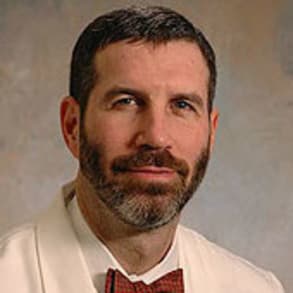David Frim, MD, discusses the evolution in Neurosurgical approaches at University of Chicago Medicine.
[MUSIC PLAYING] DAVID FRIM: Neurosurgery is one of the subspecialties of medicine that has been exploding over the last several years. Our ability to understand the workings of the brain and the spinal cord has only increased as technologies to explore those areas has become available. And the scientific underpinnings about how the brain communicates is both, within itself and to the rest of the body, are being slowly unraveled. What that has brought to our patients is AN ability to look at a patient, to diagnose a disease or syndrome, and then to think back on what the underlying pathophysiology is within the brain or spine and then derive individualized plan of care to try and fix the problem, or at least make the problem something that can be easily lived with. I think that that sort of approach is one that is arising in medicine in many areas. Because of the way the brain and spine are arranged and our ability to understand that geometry and understands its interaction with the rest of the body, we are amongst the first of specialty that is truly going to be able to have patient-tailored individual plans of care.




